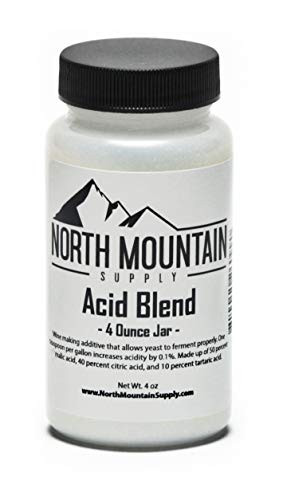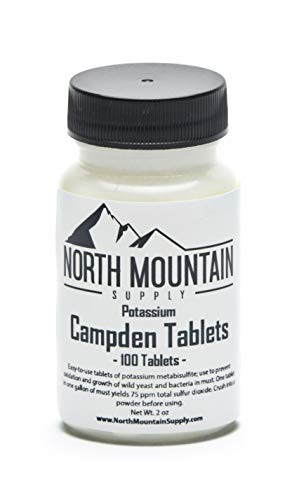Potassium sorbate is used to inhibit molds and yeasts in many foods, such as cheese, wine, yogurt, dried meats, apple cider and baked goods. It can also be found in the ingredients list of many dried fruit products. In addition, herbal dietary supplement products generally contain potassium sorbate, which acts to prevent mold and microbes and to increase shelf life, and is used in quantities at which there are no known adverse health effects. Labeling of this preservative reads as "potassium sorbate" on the ingredient statement. Also, it is used in many personal care products to inhibit the development of microorganisms for shelf stability. Some manufacturers are using this preservative as a replacement for parabens. Also known affectionately as "wine stabilizer", potassium sorbate produces sorbic acid when added to wine. It serves two purposes. When active fermentation has ceased and the wine is racked for the final time after clearing, potassium sorbate will render any surviving yeast incapable of multiplying. Yeast living at that moment can continue fermenting any residual sugar into CO2 and alcohol, but when they die no new yeast will be present to cause future fermentation. When a wine is sweetened before bottling, potassium sorbate is used to prevent refermentation when used in conjunction with sodium metabisulfite. It is primarily used with sweet wines, sparkling wines, and some hard ciders but may be added to table wines which exhibit difficulty in maintaining clarity after fining. Potassium sorbate is the most widely used preservative in the world. It is effective up to pH 6. 5. The effectiveness increases as the pH decreases. Potassium sorbate has 74% of the activity of the sorbic acid. It is very effective against yeasts, molds, and select bacteria, and is widely used at 0. 025 to 0. 10 % levels in many food and beverage products as well as personal care products like lotions and creams.
North Mountain Supply - PS-2OZ Food Grade Potassium Sorbate Stabilizer - 2 Ounce Jar
Was:
$74.96
Now:
$37.48
- SKU:
- Z25127
- UPC:
- 850004571514
- Condition:
- New
- Availability:
- Free Shipping from the USA. Estimated 2-4 days delivery.







